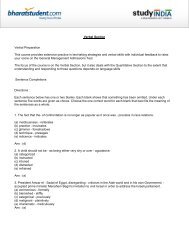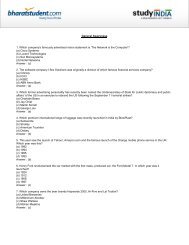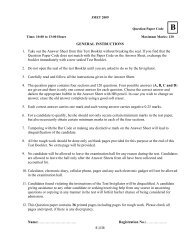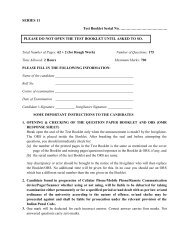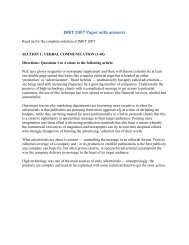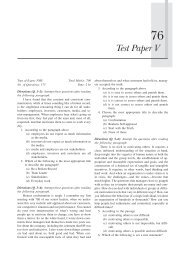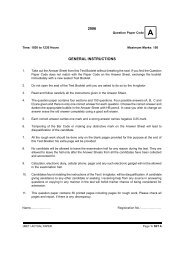ADMISSION TEST FOR PROGRAMME 2008-10
ADMISSION TEST FOR PROGRAMME 2008-10
ADMISSION TEST FOR PROGRAMME 2008-10
You also want an ePaper? Increase the reach of your titles
YUMPU automatically turns print PDFs into web optimized ePapers that Google loves.
Web sites, and advertisers could follow. “The reduction in spending by; or loss of,<br />
advertisers could seriously harm our business,” the company disclosed in its SEC filing.<br />
In the beginning, the firm earned all of its money from ads triggered by searches<br />
on Google.com. But now, most of its growth and half of its sales were coming primarily<br />
from the growing network of Web sites that displayed ads Google provided. This self-<br />
reinforcing network had a major stake in Google's successful future. It gave the search<br />
engine, operating in the manner of a television network providing ads and programming<br />
to network affiliates, a sustainable competitive advantage. But there was a dark side there<br />
too, because of the substantial revenue from a handful of Google partners, notably<br />
America Online and the search engine Ask Jeeves. If at any point they left Google and<br />
cut a deal with Microsoft or Yahoo, the lost revenue would be immense and difficult to<br />
replace. “If one or more of these key relationships is terminated or not renewed, and is<br />
not replaced with a comparable relationship, our business would be adversely affected,”<br />
the company stated.<br />
Google's small, nonintrusive text ads were a big hit. But like major television and<br />
cable networks, which were hurt by innovations that enabled users to tune out<br />
commercials, the company faced the risk that users could simply turn ads off if new<br />
technologies emerged.<br />
Going public also posed a potentially grave risk to Google's culture. Life at the<br />
Googleplex was informal. Larry and Sergey knew many people by their first names and<br />
still signed off on many hires. With rapid growth and an initial public offering, more<br />
traditional management and systems would have to be implemented. No more off-theshelf<br />
software to track revenue on the cheap. Now it was time for audits by major<br />
accounting firms. As Google's head count and sales increased, keeping it running<br />
without destroying its culture was CEO Eric Schmidt's biggest worry.<br />
Google, the noun that became a verb, had built a franchise and a strong brand<br />
name with global recognition based entirely on word of mouth. Nothing like it had been<br />
done before on this scale. The Internet certainly helped. But Google's profitability would<br />
erode if the company were forced to begin spending the customary sums of money on<br />
advertising and marketing to maintain the strength of its brand awareness. Marketing<br />
guru Peter Sealey said privately that the advice he gave Google to study consumer<br />
perception of the Google brand was rejected by the company and that they were<br />
unwilling to spend money on marketing.<br />
31



